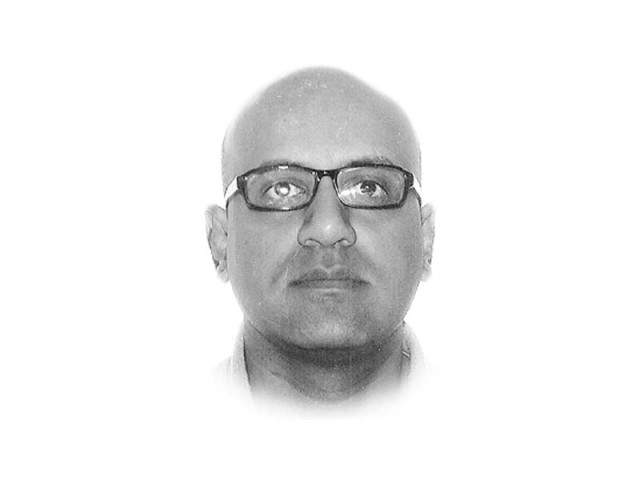Learning from Algeria’s counterterrorism experience
Pakistani security forces could benefit from the Algerian forces’ experience in dealing with terrorist organisations

The writer is a senior police officer with a PhD in counterterrorism studies. He is author of the book The Roots Of Violent Islamic Activism In South Asia
Going back in time a little, it should be noted that many Algerian radicals fought against the Soviets during the Afghan War (1979-89). Like other Arabs who fought against the Soviet forces in Afghanistan, the Algerians were also termed ‘Arab-Afghans’. Immediately after the withdrawal of the Soviet forces from Afghanistan, the Arab-Afghans of Algerian origin returned home where they found another way to reinvigorate ‘jihad’ in their own country and establish a caliphate.
The military takeover of Algeria amid an expected electoral win of the religious parties antagonised many militant groups that splintered out of the FIS, such as the Islamic Salvation Army (ISA), the Islamic Armed Movement (MIA) and Algerian returnees from Afghanistan who formed the Armed Islamic Group (GIA). Being adherents of a radical ideology, the GIA militants already had a deep-rooted hatred for democracy and now, after seeing the decisions taken by the Algerian government, announced jihad against the regime and proclaimed the establishment of a caliphate in 1994. The ISA, the MIA and the GIA perpetrated more than 2,600 terrorist attacks across Algeria in which more than 100,000 people lost their lives. The most lethal terrorist organisation was the GIA. Its terrorist campaign began in 1993 and continued till 2002. The GIA was led by a number of emirs during its terrorist onslaught and all were eventually successfully eliminated by the Algerian security forces.
The primary objectives of the GIA’s terrorist campaign were similar to that of the present-day Tehreek-i-Taliban Pakistan (TTP). The GIA agenda was to enforce its interpretation of Sharia in Algeria, and turn the country into a caliphate. The GIA considered all Algerians not abiding by the GIA’s cause as apostates. It slaughtered hundreds of villages during night raids, raped and killed women and beheaded all inhabitants, including children.
One peculiarity about Algeria’s counterterrorism experience is that the Algerians learned to deal with terrorists long before the commencement of the global war on terror. The rugged terrain of Algeria shares many similarities with Pakistan. With a long coastline in the north with desert and mountains in the south, the country provides a natural and hospitable terrain for terrorists to operate. The TTP appear very similar to GIA as far as terrorist tactics and ideology is concerned.
The Algerian government and populace, even those supporting religio-political parties, were shocked by the ferocity of the GIA’s terrorist attacks. The government’s response although stern, came after a number of years. A state of emergency was promulgated and all constitutional rights were suspended to deal with the GIA. Extreme repressive measures were taken by the Algerian military and the police to root out the GIA. These measures included targeted killings of GIA sympathisers, and disappearances of hundreds of GIA militants. Black sites were established to detain and torture GIA suspects. The Algerian government also successfully exposed the jihadi excesses and vices through mass media.
The GIA, which was considered invincible during the early period of its terrorist campaign, also made a number of mistakes. Because of its radical ideas, its militants massacred thousands of people whom they deemed apostates. It bombed city centres, butchered entire villages, and most importantly, launched international terrorist attacks in France and Belgium. In later years, the GIA experienced factional fighting which eventually paved the way for the government forces to destroy and dismantle it conveniently. The Algerian government’s counterterrorism policies were calibrated in such manner that they allowed the GIA to splinter and no action was taken while it was splintering. Help was also sought from Western countries in the form of training and equipment for security forces.
In the war’s final phase, the Algerian government declared amnesty for those who surrendered unconditionally. Many of the remnants of the GIA immediately took advantage of this and surrendered. The government also announced new elections and the rehabilitation of those who had surrendered, along with a deradicalisation programme. After all these efforts, some irreconcilable elements of the GIA formed a splinter faction, which remained in action for a few years before formally merging into al Qaeda.
There are several critical issues regarding replicating the Algerian government’s counterterrorism policies in Pakistan. Algeria was not a democracy. Everything was managed by the Algerian military and it had a virtual freehand to deal with the terrorists in whatever manner it deemed appropriate. It might not be possible to replicate the extreme repressive policies of the Algerian military in a democratic country like our but certain steps, such as announcing amnesty at a stage when the terrorist organisation becomes weak after a strong and concerted action could be successfully adopted. Moreover, deradicalisation programmes are also an option. Most importantly, the Pakistani security forces could benefit from the Algerian security forces’ experience in dealing with terrorist organisations. The Algerians remained on the offensive against the terrorists and have managed to defeat them. Their modus operandi could be studied and evaluated by Pakistani officers in strategising a counterterrorism model applicable to our situation.
Published in The Express Tribune, April 9th, 2015.
Like Opinion & Editorial on Facebook, follow @ETOpEd on Twitter to receive all updates on all our daily pieces.















COMMENTS
Comments are moderated and generally will be posted if they are on-topic and not abusive.
For more information, please see our Comments FAQ